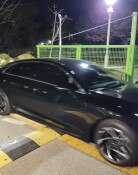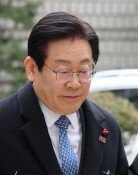Traditional Market Gift Certificates
Traditional Market Gift Certificates
Posted September. 20, 2010 14:37,
A large commercial-residential building called Market Hall will be completed in Rotterdam, the Netherlands, in 2014. Unlike commercial residential buildings in Korea, which often contain large discount stores, the edifice is an apartment building that includes a traditional market. When a building shaped like an upside down U is completed there, it will likely become a tourist hotspot. In Seoul, Woorim Market offers free parking and shopping carts for shoppers plus home delivery of purchased items. Around the end of the year, residents and merchants at the mart team up to stage musical performances. Nobody can guess that Woorim Market was a street of bars and lodging long ago, where merchants and farmers from Gyeonggi and Gangwon provinces stayed over night en route to Seouls Majang-dong district to sell their cows.
Traditional markets in Korea have been in decline over the past several years due to competition from department stores and large discounters. They are the first to suffer the impact of recession, but around these Chuseok (Full Moon Harvest) holidays, they are seeing a better sales performance. They are no match for department stores, however, where expensive gift sets have sold out en masse. For traditional markets to get over their prolonged slump, the first priority is to attract customers. They must resolve problems with parking and returns and refunds, the chief sources of consumer complaints. Modernization of facilities and joint marketing are essential and development of unique themes including history, culture and tourism is another strategy.
To help traditional markets attract customers, gift certificates are being used. The unions of Korea Electric Power Corp. and its affiliates bought gift certificates called Onnuri (the whole world) worth 3.9 billion won (3.4 million U.S. dollars). The certificates can be used to purchase products at 807 traditional markets nationwide. As the electric companys union moved to help traditional markets, management also joined the campaign. The Hanwha Group also purchased such gift certificates worth 7 billion won (6 million dollars), and gave them to staff as a Chuseok bonus. The Onnuri gift certificate, which debuted in July last year, will likely see sales of 20 billion won (17 million dollars) over this years Chuseok holidays, a huge leap from 6.8 billion won (5.9 million dollars) sold at the same time last year and more than the 13 billion won (11 million dollars) worth sold over this years Lunar New Years holidays.
Municipal and provincial governments are also racing to introduce gift certificates designed to support their constituents. Geosan County in North Chungcheong Province issued gift certificates collectively worth 13 billion won (11 million dollars) from 1996 to this year. Goryeong County in North Gyeongsang Province has produced gift certificates valued at 5 billion won (4.3 million dollars) from 1999. Gift certificates were initially supplied mostly to civil servants who received them as a portion of their salaries, but more companies and residents have grown interested in them. The reality, however, is that many people complain that they can hardly find items they want to buy with such certificates. For traditional market gift certificates to gain popularity, the markets should offer a wide variety of quality products that consumers can always buy with gift certificates.
Editorial Writer Hong Kwon-hee (konihong@donga.com)







